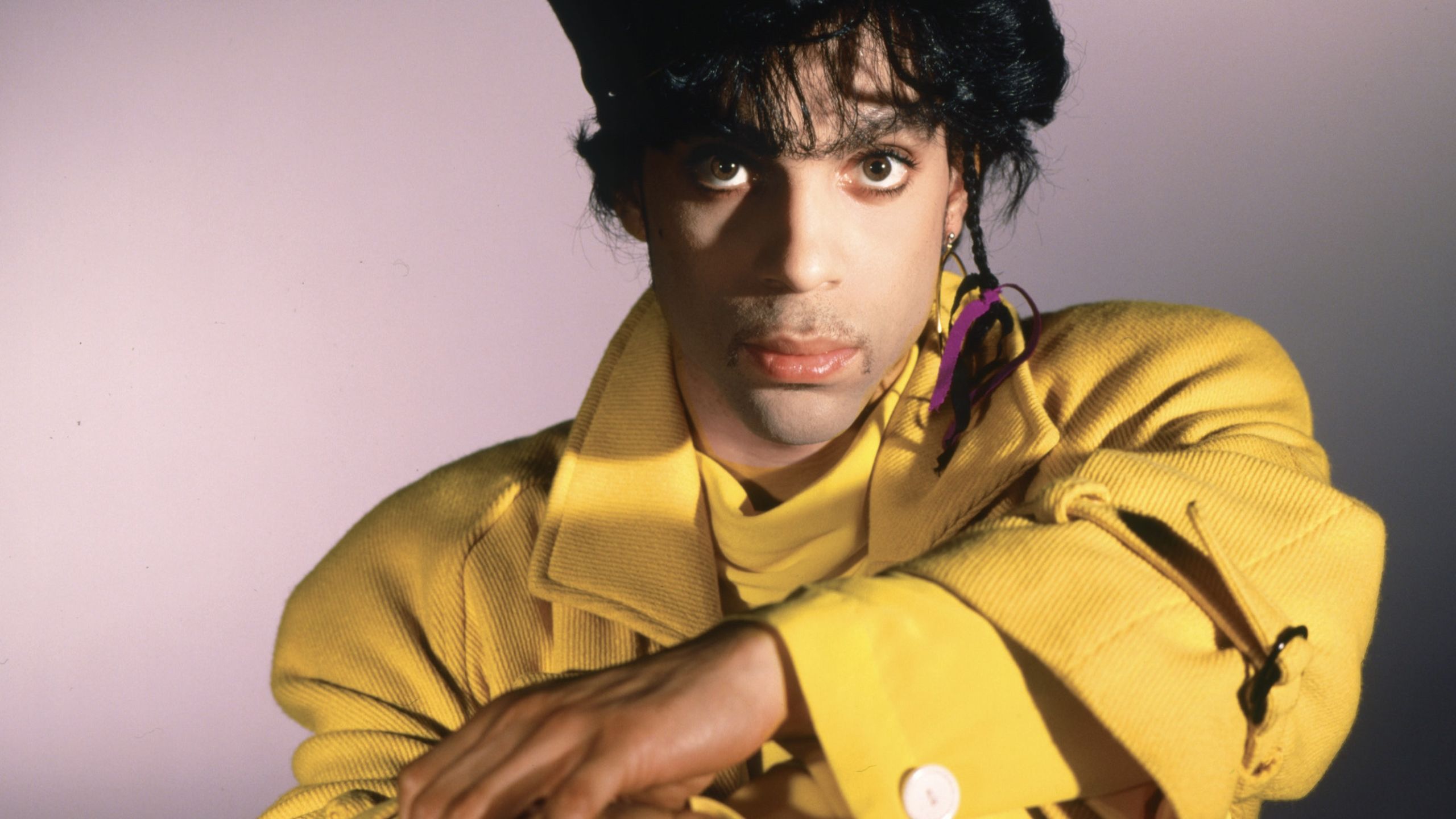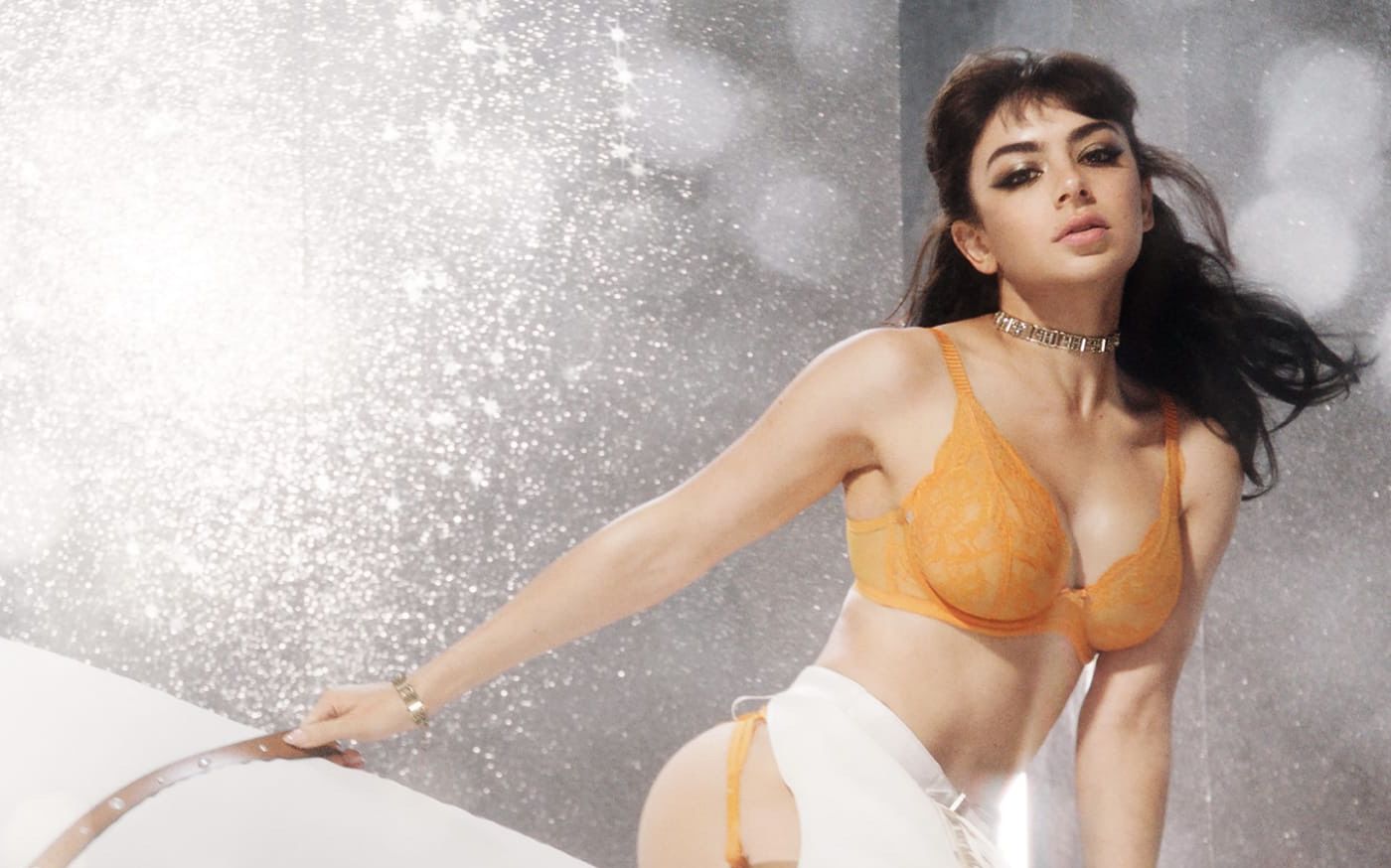Our 10 favourite gay icons
Looking at some of the greatest gay icons in music history.
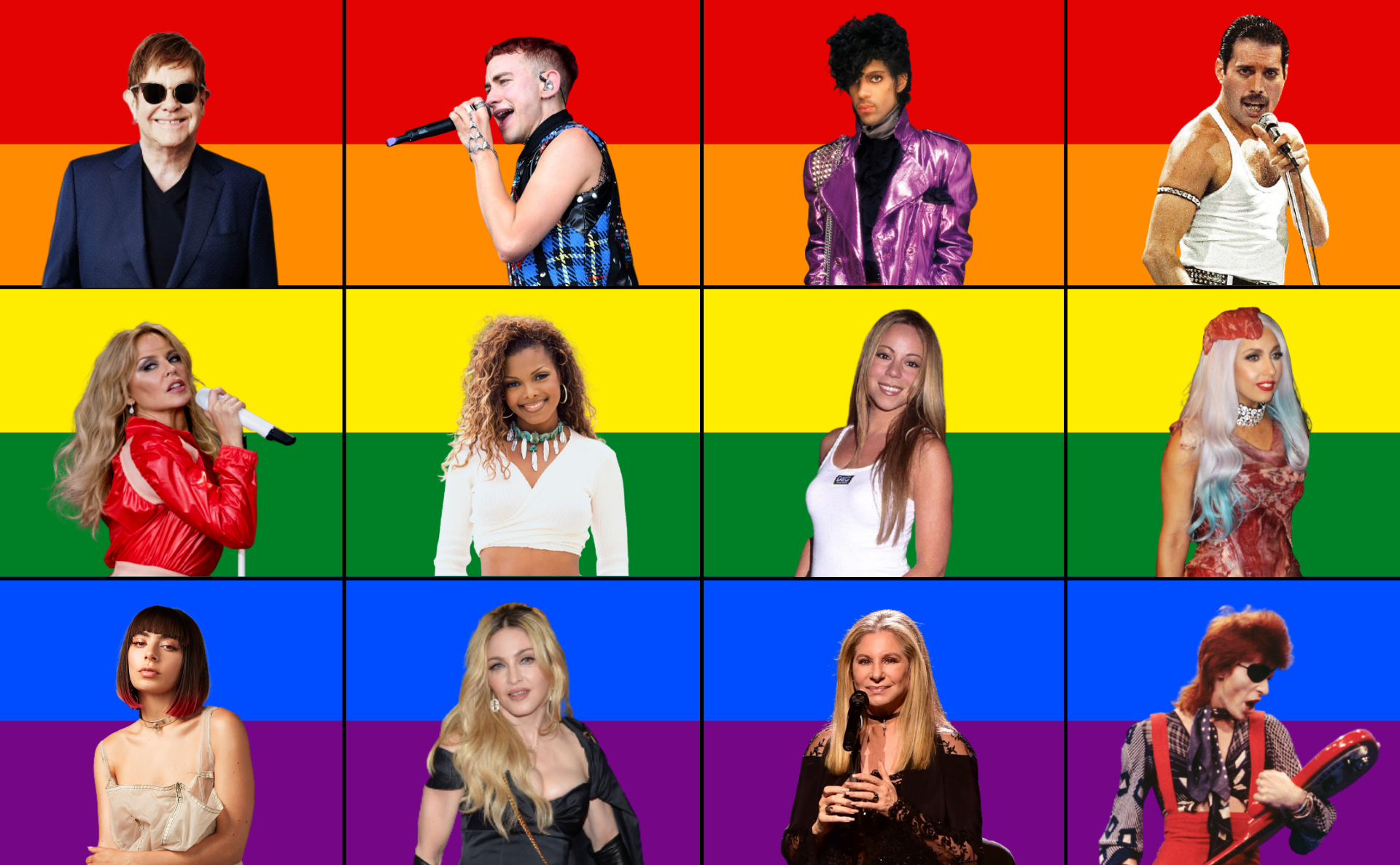
Barbra Streisand
"Streisand’s career started in gay nightclub The Lion in Greenwich Village, New York. Since then, her films and music have amassed huge support, particularly from the gay community that helped to shape her into the superstar she is. Her works are larger than life, and her sensitive portrayals of ethnic urban characters reflect her liberal politics and outspokenness for gay rights. She was named one of the “12 Greatest Female Gay Icons of All Time” by Out magazine and Gay Times recognised her as one of the top gay icons of the last thirty years. In a letter she wrote for Billboard, Streisand wrote “we’re all unique and beautiful in our own way and entitled to love and be loved by whomever we choose”. Her message of hope, love and freedom is only amplified by her immense voice, which, for good reason, has stuck with fans for over six decades."
- Cristina Maino
Elton John
"Elton John is by far one of my favourite LGBTQ+ singers. Being gay during the 80s was difficult, but Elton John accepted who he was. He embraced it and let it explode through his stage presence and aesthetic. Elton John made sure to send a message to people who were cast out like him. He reassured people who were not fitting in that they would eventually find their place. He also opened up a lot about his sexuality throughout his career. In 1974, the singer declared in a Rolling Stones interview that he was bisexual and that there was nothing wrong in desiring homosexual relationships. At the beginning of the 1990s, he came out as gay. John then started to become a major voice within the LGBTQ+ community, fighting for the legality of same-sex marriage, with his own wedding being one of the first ones, encouraging people to vote, and always declaring how proud he was to belong to the community."
- Heloise Patin
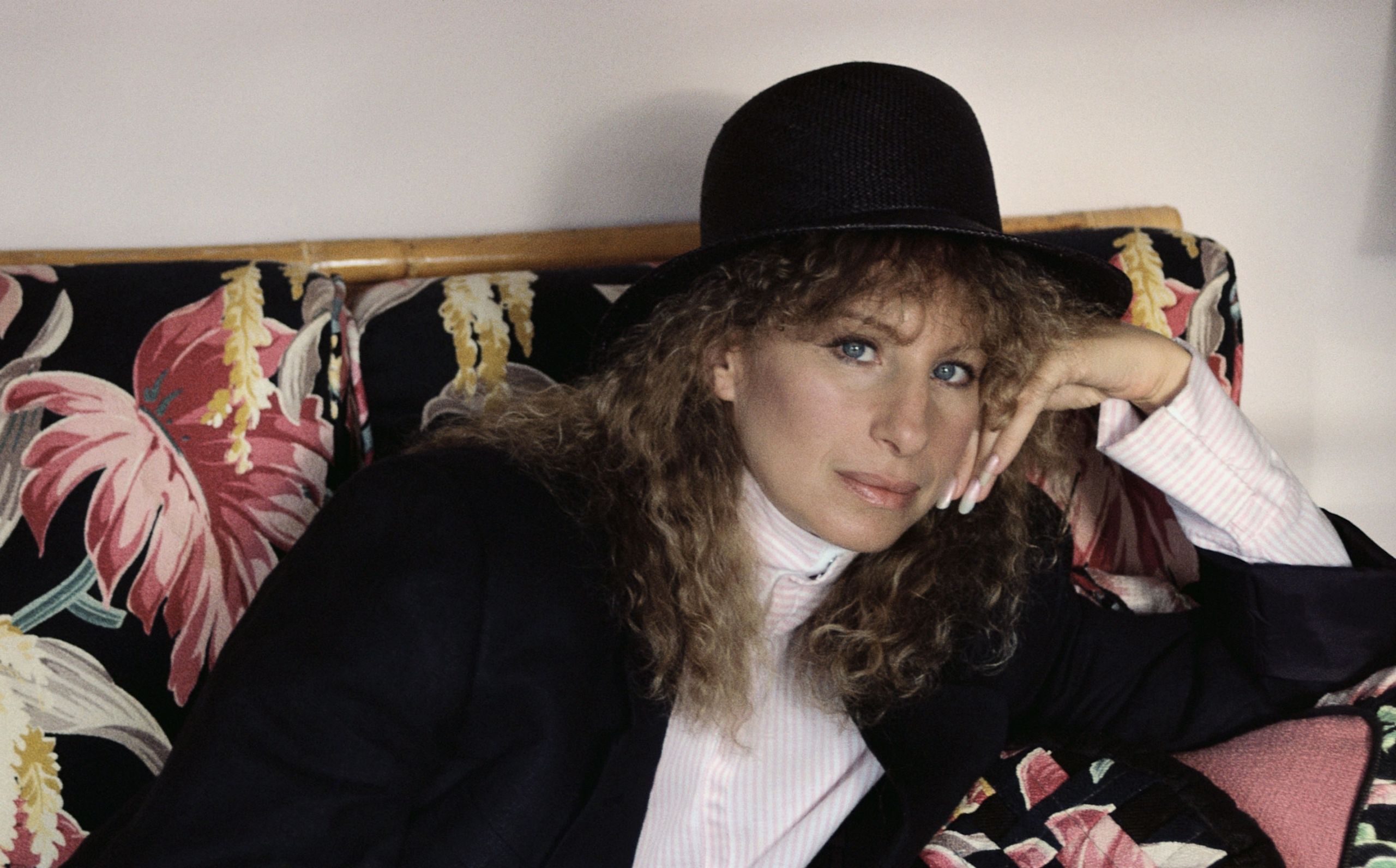
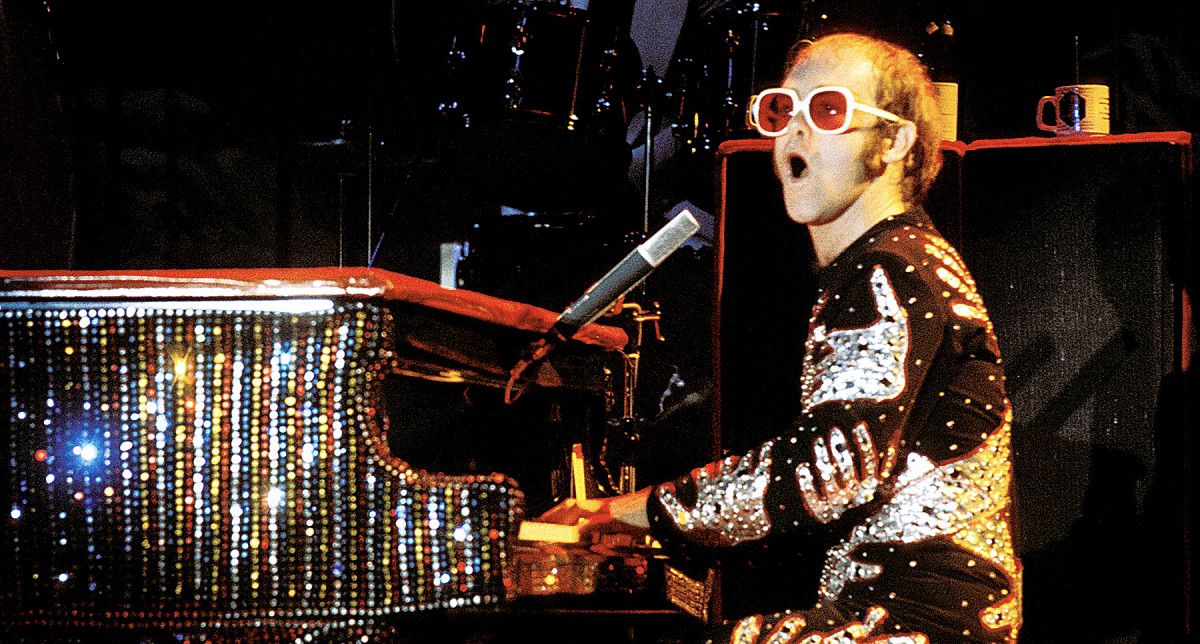
Mariah Carey
"What makes Mariah Carey a gay icon isn’t simply the fact she has an album called Rainbow, it’s her survival through the many trials she’s faced: an abusive marriage, an abusive childhood and a well-documented struggle with abusively fluorescent lighting. Her lyricism has given LGBTQ+ people all over the world an artist to relate to and empathise with, even if their own struggles don’t necessarily mirror her own. As if that wasn’t enough, thanks to the unstoppable holiday force that is 'All I Want For Christmas is You', she has been crowned the Queen of Christmas, a title that immortalises her within gay culture as well as western culture. For the other 11 months of the year, her playful and melodramatic behaviour, partnered with her shady remarks, helps to make her an unforgettably camp character and legend in the gay community’s hall of fame."
- Bailey Agbai
Lady Gaga
"Gay icons tend to incorporate themes of acceptance, self-love and sexuality into their work, and Lady Gaga ticks all these criteria. She’s unafraid to question the constructs of gender and what it means to be feminine; in 2010 Gaga created her alter ego ‘Jo Calderone’, who attended the 2011 MTV Video Music Awards and in a critique of the theatrical nature of gender, and the hyper-sexualisation of Gaga’s feminine identity. She frequently acknowledges the role her gay fans have played in her success, and dedicated the ‘Alejandro’ music video to the community. On top of her theatrical approach to performance, Gaga remains one of the fiercest celebrity advocates for LGBTQ+ rights. In 2011, she created the Born This Way Foundation to help erase bullying of the LGBTQ+ youth, and the infamous 2010 ‘meat dress’ was actually a vessel to express anger at the US military’s anti-LGBTQ+ policy. Above all, Gaga is unapologetically herself, which has won her the hard-earned respect of the gay community."
- Lauren Shelley
'Alejandro' by Lady Gaga
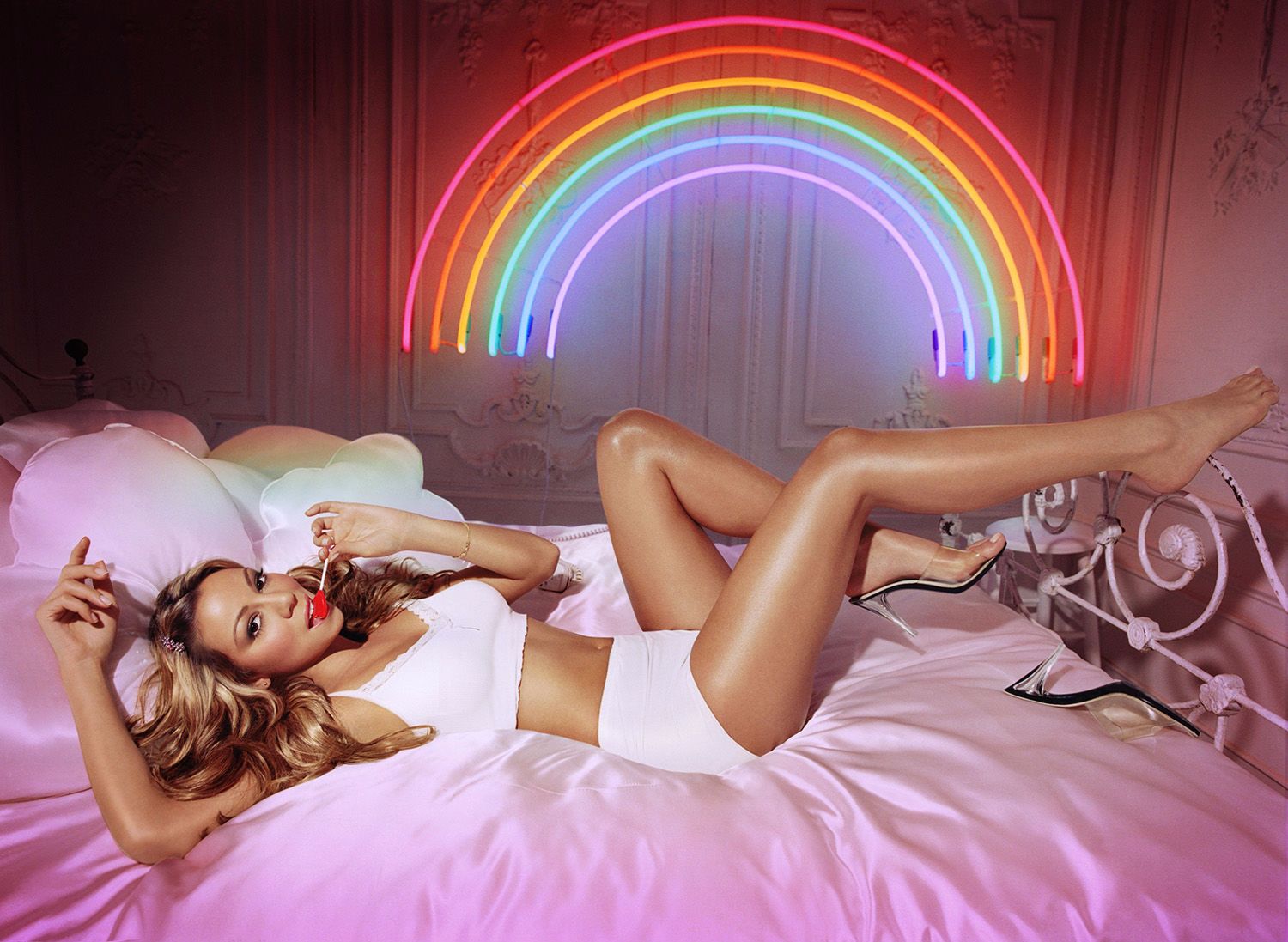
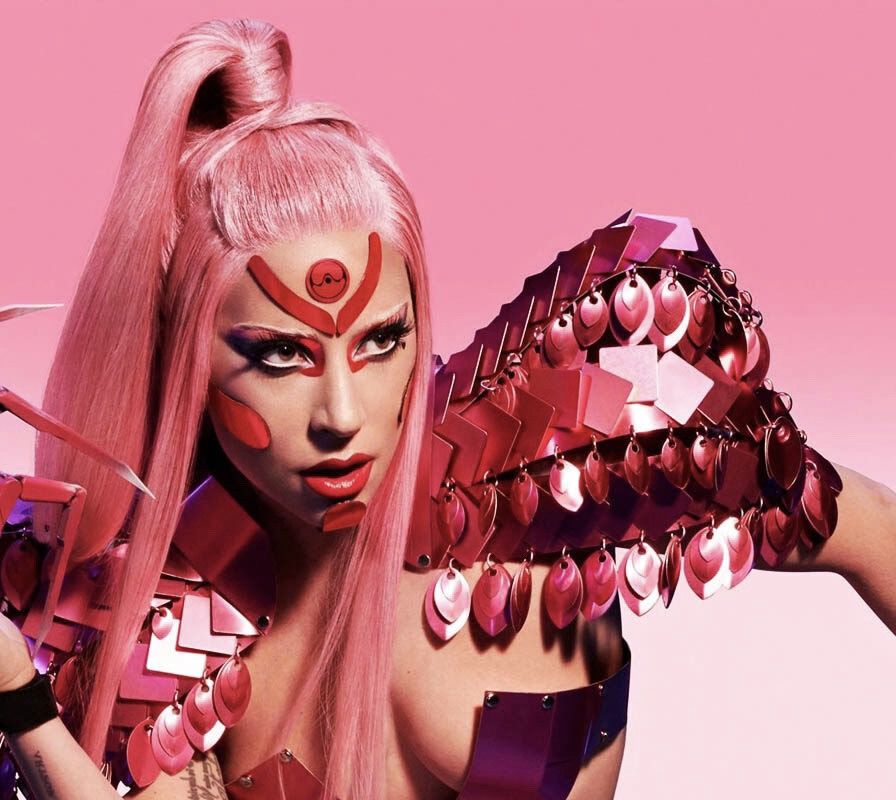
ABBA
"ABBA, known for their spangly outfits and feel-good tunes, are comprised of two formerly married couples (Agnetha Fältskog & Björn Ulvaeus, Benny Andersson & Anni-Frid Lyngstad), and rose to fame by winning Eurovision for Sweden in 1974, with their catchy and upbeat song ‘Waterloo’. As if Eurovision fame wasn’t enough to secure stardom within the gay community, they released their disco anthem ‘Dancing Queen’ in 1976, becoming a firm favourite to played in gay clubs at the time. Despite their split in 1982 following a breakdown in the members’ marriages, their iconic status has lived on due to the success of stage musical turned film Mamma Mia!. ABBA even attributes their planned 2021 comeback to their support from gay fans. Let’s hope more gay anthems are to come!"
- Meera Eldridge

ABBA from left to right, Björn Ulvaeus, Agnetha Fältskog, Anni-Frid Lyngstad, Benny Andersson. Credit: RB/Redferns/Getty
ABBA from left to right, Björn Ulvaeus, Agnetha Fältskog, Anni-Frid Lyngstad, Benny Andersson. Credit: RB/Redferns/Getty
Madonna
"Inarguably music’s most famous provocateur, Madonna’s influence on pop music and the gay community is second to none. The Queen of Pop, Madonna’s use of proud sexual imagery combined with a constant passion for reinvention has cemented her place as probably the most visually versatile artist of the 20th century. Her enthusiasm for consistently pushing boundaries, whether it be exploring her sexuality in her coffee table book, Sex, placing anti-racism messages in her ‘Like a Prayer’ music video, or just continuing to thrive in an ageist society, Madonna has always pushed the conversation forward and inspired her gay fans all around the globe."
- Bailey Agbai
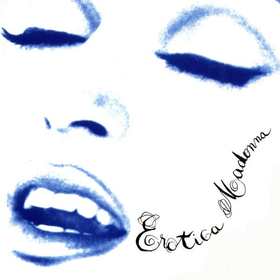
Image: The cover art of Madonna's sexually explorative and controversial 1992 album, Erotica.
Image: The cover art of Madonna's sexually explorative and controversial 1992 album, Erotica.
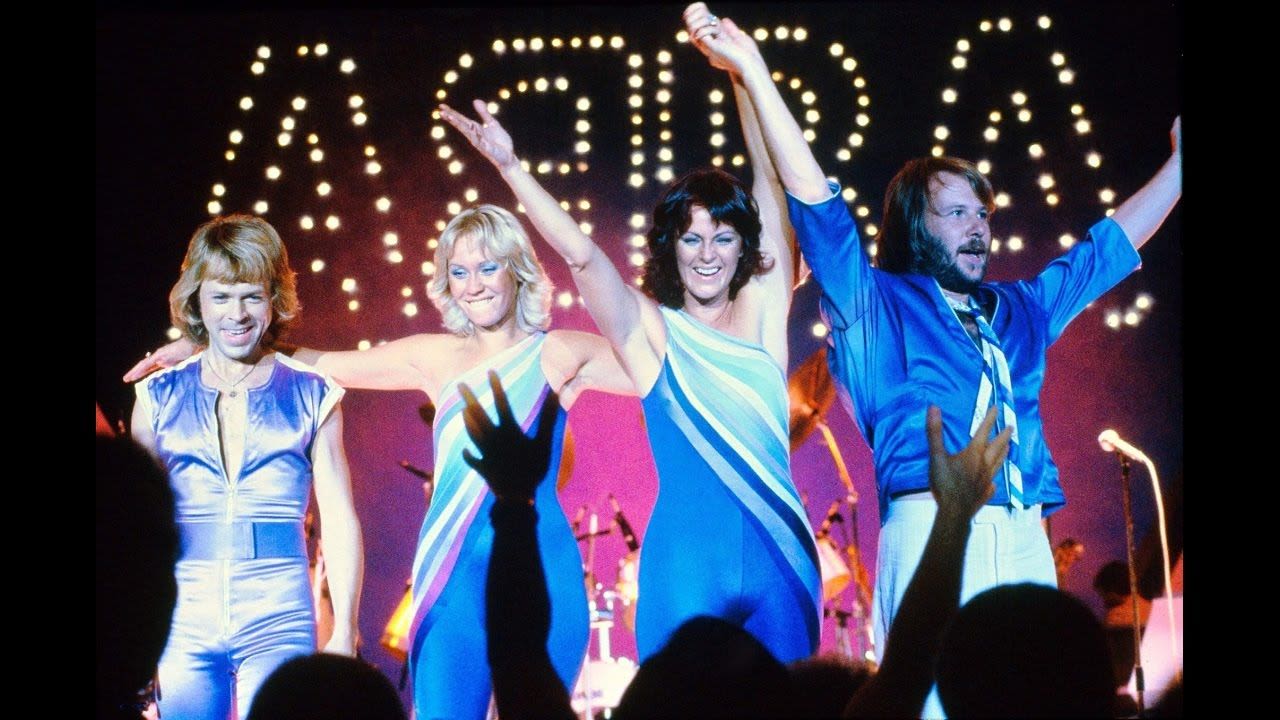
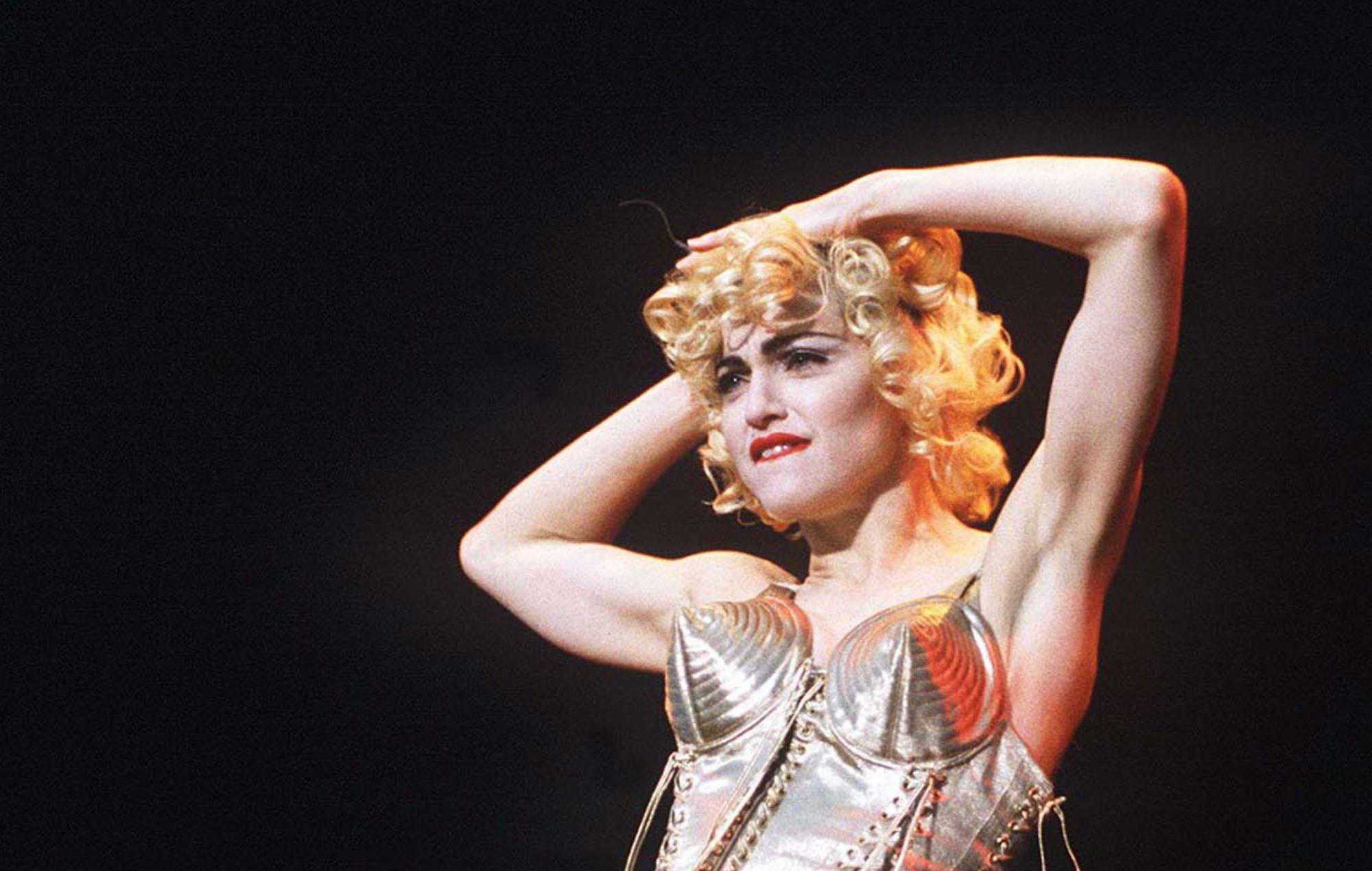
Olly Alexander
“Although I was always a fan of Years & Years’ music, it wasn’t until I saw frontman Olly Alexander’s inspiring speech at Glastonbury in 2019 that I realised what an incredible LGBTQ+ activist he was and continues to be. Fast forward to 2021, and his watershed performance in Russell T. Davies’ It’s A Sin has rightfully elevated him to icon status: he has used his success to promote open discussions on HIV, queer relationships and sexuality, as well as eating disorders (such as bulimia, which he has personally suffered from), all while creating veritable bangers. From collaborations with fellow synth-pop legends Pet Shop Boys, to his band’s own gold-certified tunes like ‘If You’re Over Me’, Olly has truly proven you can do it all. Gen Z’s ultimate jack (or Olly?) of all trades.”
- Cerys Turner
Olly Alexander's 2019 Glastonbury speech
Freddie Mercury
“It’s hard to imagine that an icon so loved by millions across the world could have had such a difficult time coming to terms with his own identity. Understandable, however, as Freddie Mercury was raised by strict, homophobic parents, and part of their intolerance persisted in him for many years. While he never officially came out to his family or the public, his flamboyant performances and defiance of the gender binary helped thousands of young LGBTQ+ people to survive the severity of homophobia and transphobia during the AIDS epidemic. After his death, the Mercury Phoenix Trust was founded to honour his legacy, which has supported over 700 projects and donated over 15 million dollars in support of AIDS organisations. To this day, Mercury’s performances remain a staple of grandeur, eccentricity and majesty. While his brilliance continues to give so many people hope, it also shows us how far we still have to go to protect LGBTQ+ people.”
- Cristina Maino
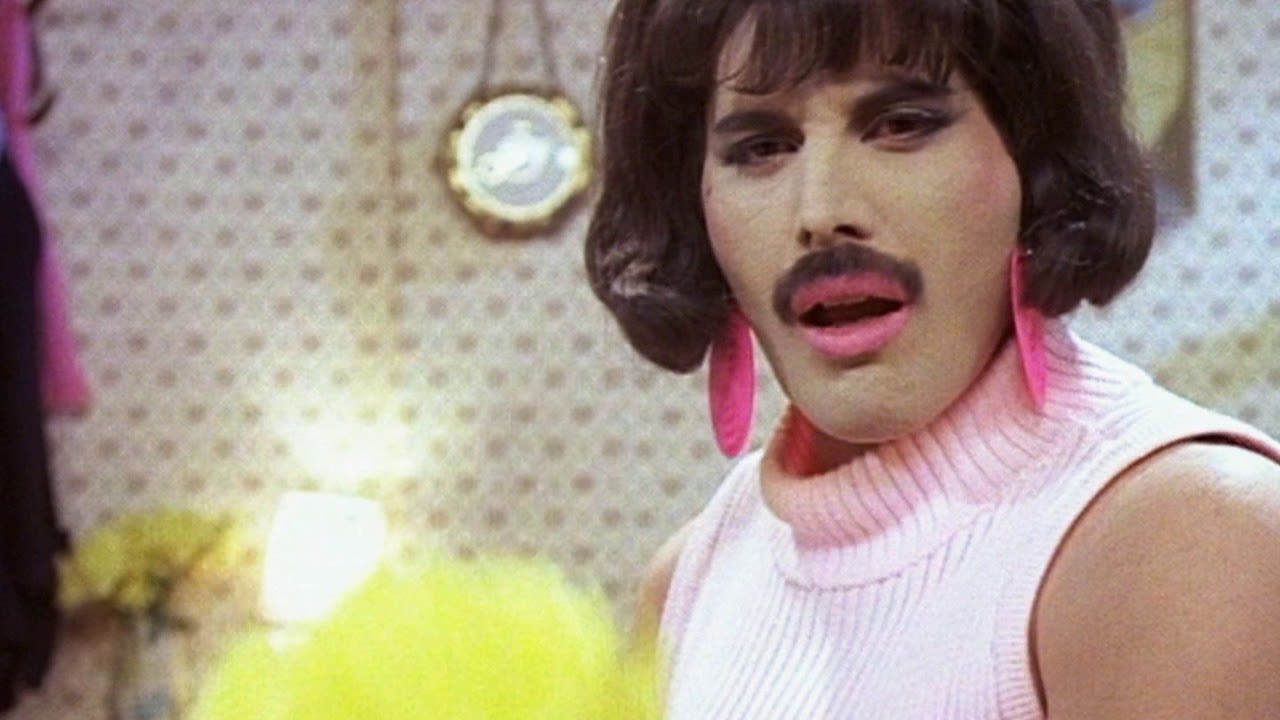
Freddie Mercury in Queen's video for 'I Want to Break Free'
Freddie Mercury in Queen's video for 'I Want to Break Free'
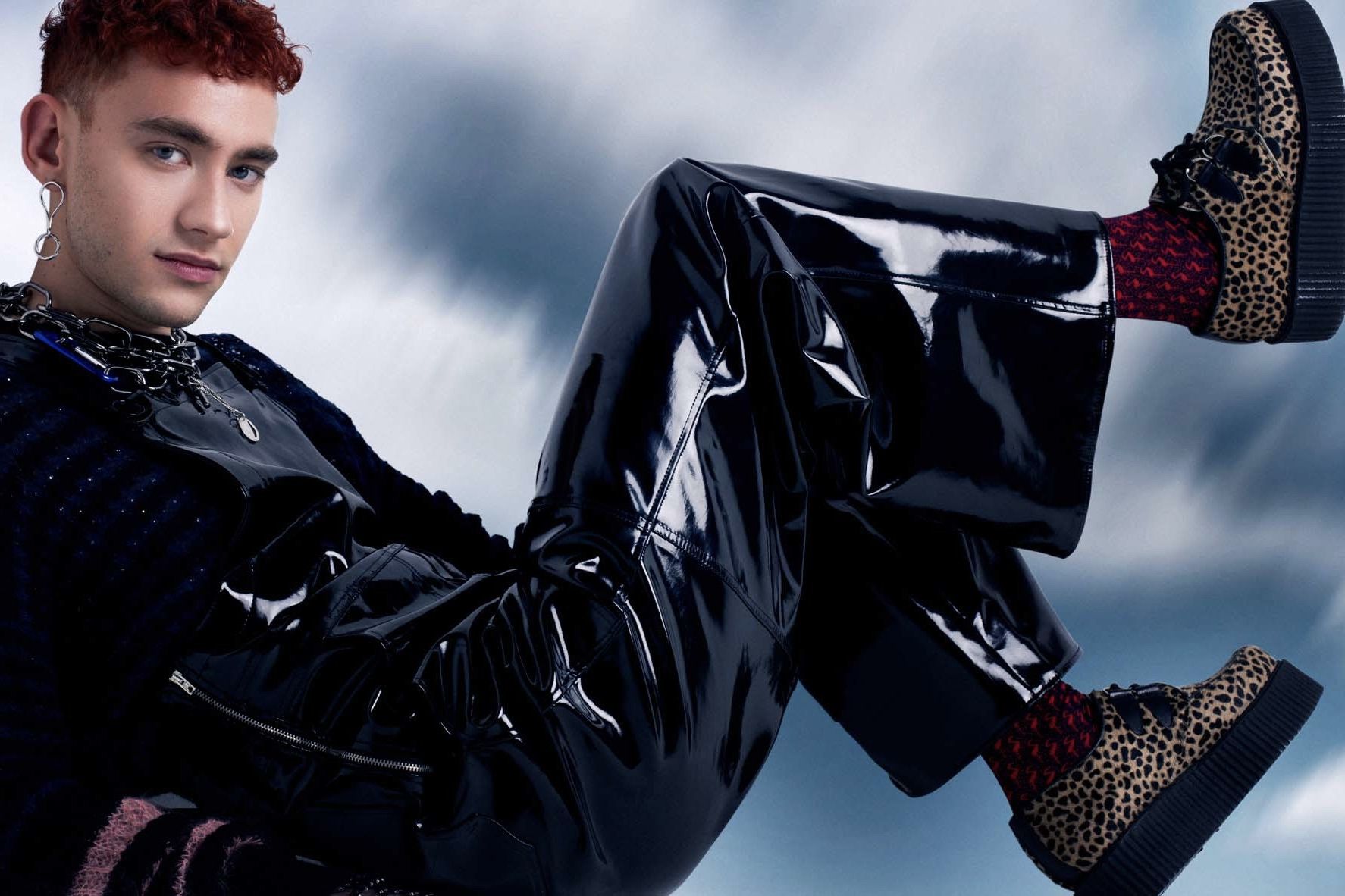

Prince
“In a 20th century world uncomfortable with any blending of the strict gender norms in place, Prince sought to break them down with his flamboyant clothing, sexually suggestive lyrics and irresistible charisma. Across his career, he would blur the lines between the constructs of masculine and feminine, acting as his feminine alter ego of Camille on ‘If I Was Your Girlfriend’ and often appearing on stage in high heels before bursting into his distinct falsetto register. Even though he identified as straight, his androgynous appearance made way for media scrutiny and speculation over him being otherwise. It is not only in his constant determination to be his authentic self, but in his proud embrace of his individuality that LGBTQ+ people have been able to relate to his art, his words and his legacy. ”
- Bailey Agbai
Prince performing 'If I Was Your Girlfriend' in his 1987 film Sign o' the Times
Charli XCX
“Charli XCX has always been a fan of working alongside queer talent (see ‘Gone’ with Christine and the Queens or ‘Click’ with Kim Petras), but her status as a gay icon goes past that. Whether it’s signing a bottle of poppers, teaming up with Troye Sivan to create the Go West Fest queer festival, or simply being “busy thinking ‘bout boys” over a Super Mario Bros beat, Charli XCX’s career seems to revolve around bringing joy to the LGBTQ+ community. It’s hard to put into words how much of a gay icon she is because she seems to naturally fill the criteria for the role in everything she does. Whether it be an Instagram post or a new gay club anthem, everything Charli XCX does feels inherently, purposely, and vibrantly gay, and that’s what makes her such a modern day icon for the community."
- Bailey Agbai
Charli XCX & Troye Sivan - '1999'
